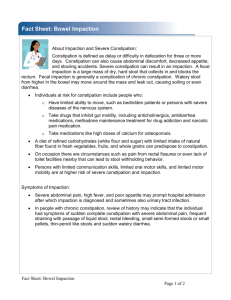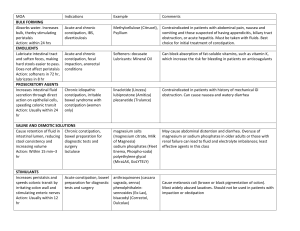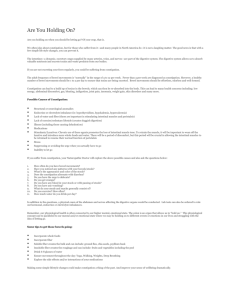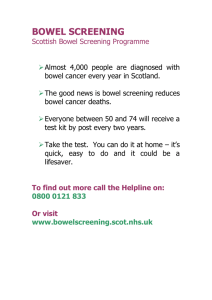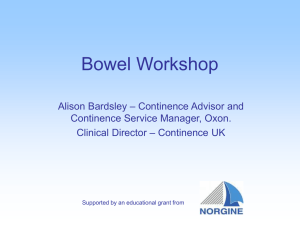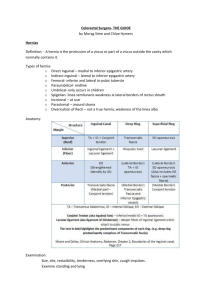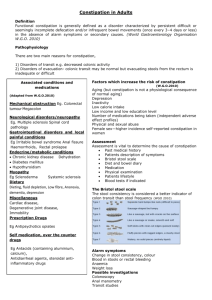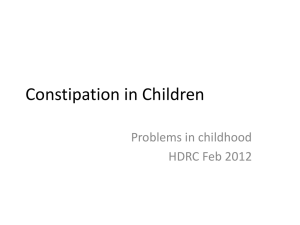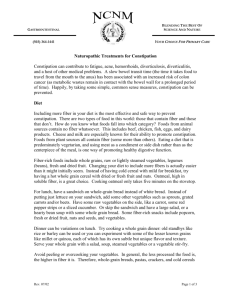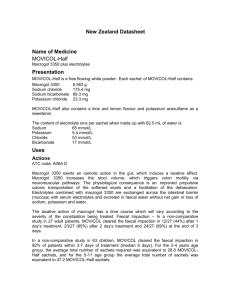23 Bowel Impaction pg 2
advertisement
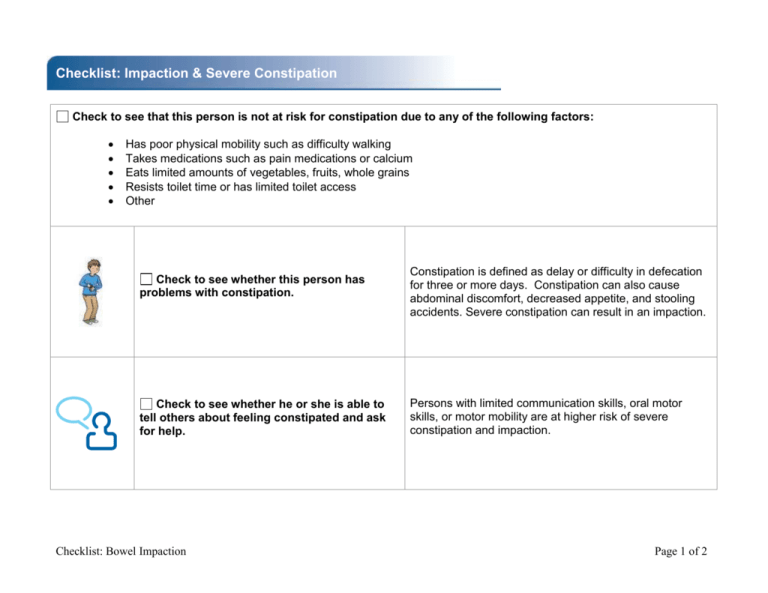
Checklist: Impaction & Severe Constipation Check to see that this person is not at risk for constipation due to any of the following factors: Has poor physical mobility such as difficulty walking Takes medications such as pain medications or calcium Eats limited amounts of vegetables, fruits, whole grains Resists toilet time or has limited toilet access Other Check to see whether this person has problems with constipation. Check to see whether he or she is able to tell others about feeling constipated and ask for help. Checklist: Bowel Impaction Constipation is defined as delay or difficulty in defecation for three or more days. Constipation can also cause abdominal discomfort, decreased appetite, and stooling accidents. Severe constipation can result in an impaction. Persons with limited communication skills, oral motor skills, or motor mobility are at higher risk of severe constipation and impaction. Page 1 of 2 Check to see whether this person used enemas, suppositories, or medications like laxatives and stool softeners to induce bowel movements. Check to see whether he or she had a hospital admission for bowel impaction. Check to see whether he or she is receiving a diet with increased fiber or medications to prevent constipation and bowel impaction. Check to see whether there is a care plan if this person does not have a bowel movement after a specified number of days. Unclear or concerned about an answer? Checklist: Bowel Impaction These treatments and medications should be recommended by the physician, but the need for them indicates that the person has significant constipation which is not adequately controlled by diet and regular fluid intake. Symptoms of severe abdominal pain, high fever, and poor appetite may prompt hospital admission after which impaction is diagnosed. Treatment of impaction often requires repeated enemas and manual extraction followed by changes in diet, bowel habits, and medications to keep stool soft. Diet adjustments such as increasing fluid intake and fiber intake from whole-wheat grains, bran, fresh fruits and vegetables may help soften and add bulk to the stool and promote normal bowel movements. For people who have difficulty communicating, require assistance with toileting, and who have constipation, it is important to keep track of the frequency of bowel movements. If the individual misses bowel movements for more than three days, caregivers should notify clinical staff so that impaction is prevented. Please consult with your clinical staff for appropriate follow-up Page 2 of 2
